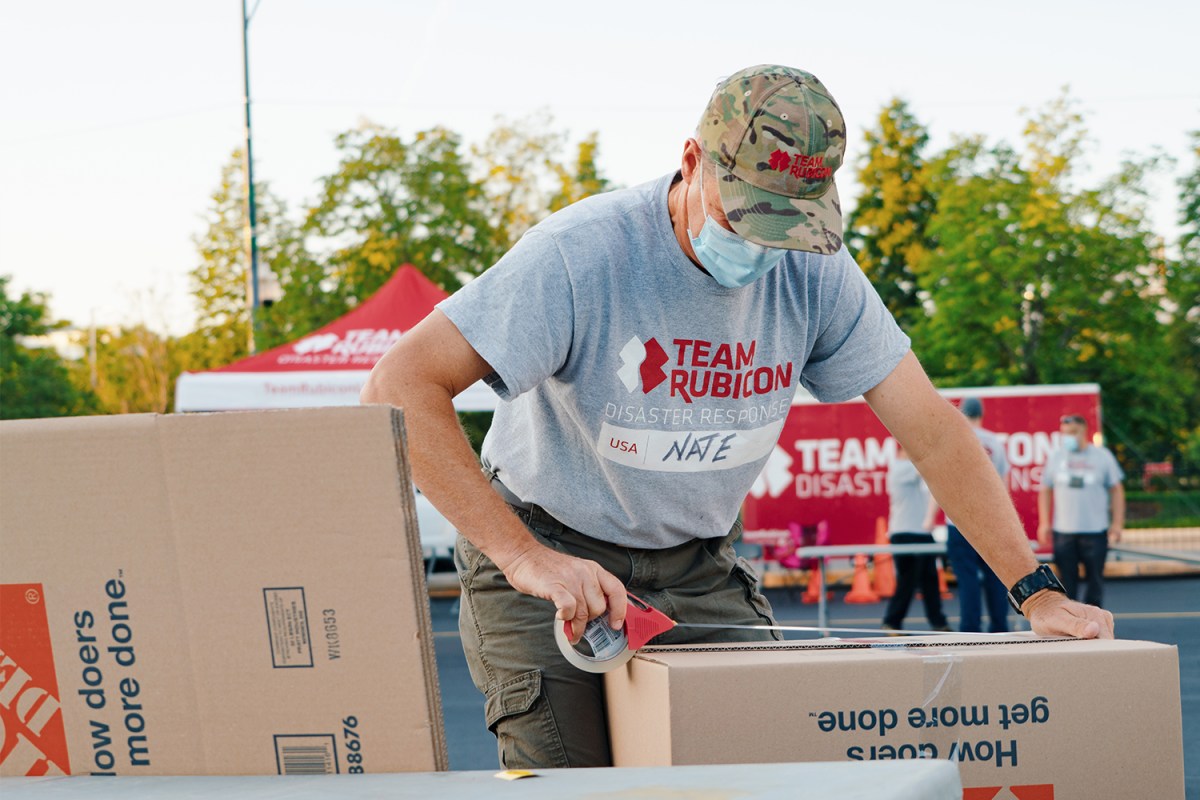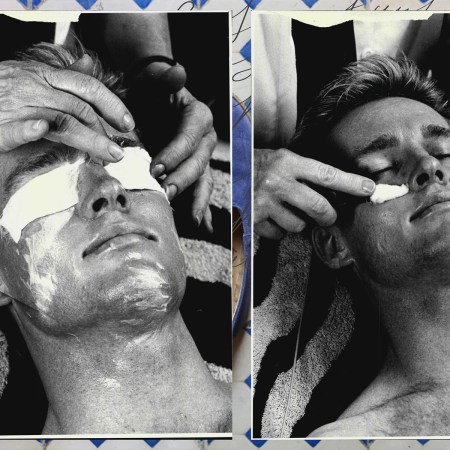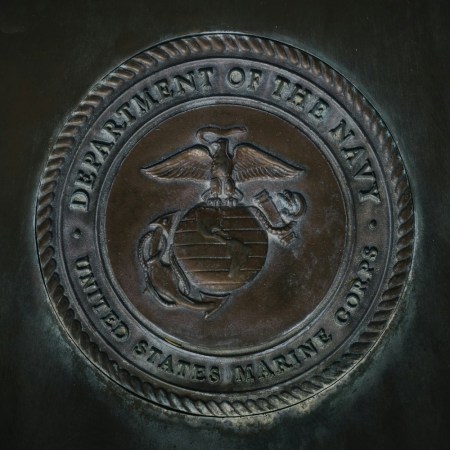It’s Team Rubicon’s mission to respond to all kinds of disasters: earthquakes in Haiti, hurricanes in Louisiana, tornadoes in Oklahoma. If the stakes are high and the need is dire, the veteran-led nonprofit has been offering its services since 2010. But on a recent crisp fall day in Minnesota, volunteers and staff were receiving and packing up sweatshirts and diapers and taking breaks to eat fruit snacks. Not the usual Team Rubicon M.O.
“Here today there are first-time volunteers that are retired military veterans and some people that have never been in the military,” Team Rubicon CEO Art delaCruz told InsideHook. “We’ve taken all the good things about the military and brought them in and got rid of all the stuff that was kind of a pain in the ass.”
The mission that day was collecting donated goods for Afghans who have evacuated their home country as a result of the U.S. withdrawal and are in the process of resettling here. Team Rubicon was recently tasked by the State Department and Department of Defense to lead the management and distribution of donations — from winter boots to baby formula — to the various military bases where refugees are working through the resettlement process.
This specific kind of humanitarian effort hasn’t always been a part of Team Rubicon’s purview, but delaCruz, who was helping out along with everyone else at a parking lot and loading dock at Target Field in Minneapolis, explained it’s been something the group has been working up to during the pandemic.
“It kind of nests itself into a decision we made in March of 2020,” delaCruz said. Once a national emergency was declared at the outset of the COVID-19 pandemic, the leadership team decided Team Rubicon could either “survive” and “go into hibernation mode” or “thrive” and “be prepared to do anything.” They chose the latter.
“Next thing you know we’re being asked to help with food banks, with feeding operations, and we’re asked to stand up field hospitals, and we’re asked to send medical professionals to Navajo Nation to decompress a stressed medical system, and we’re setting up testing sites,” he explained. They did all of that and more, and when the vaccines came, they started helping with vaccine distribution. All told, they’ve completed around 635 operations since that time, a huge leap from the 109 they tallied in 2019.
“All this while we’re doing disaster response: tornadoes in Tennessee, hurricanes in Louisiana, rebuilding houses in Houston,” he said, “all that’s going on in the backdrop.”
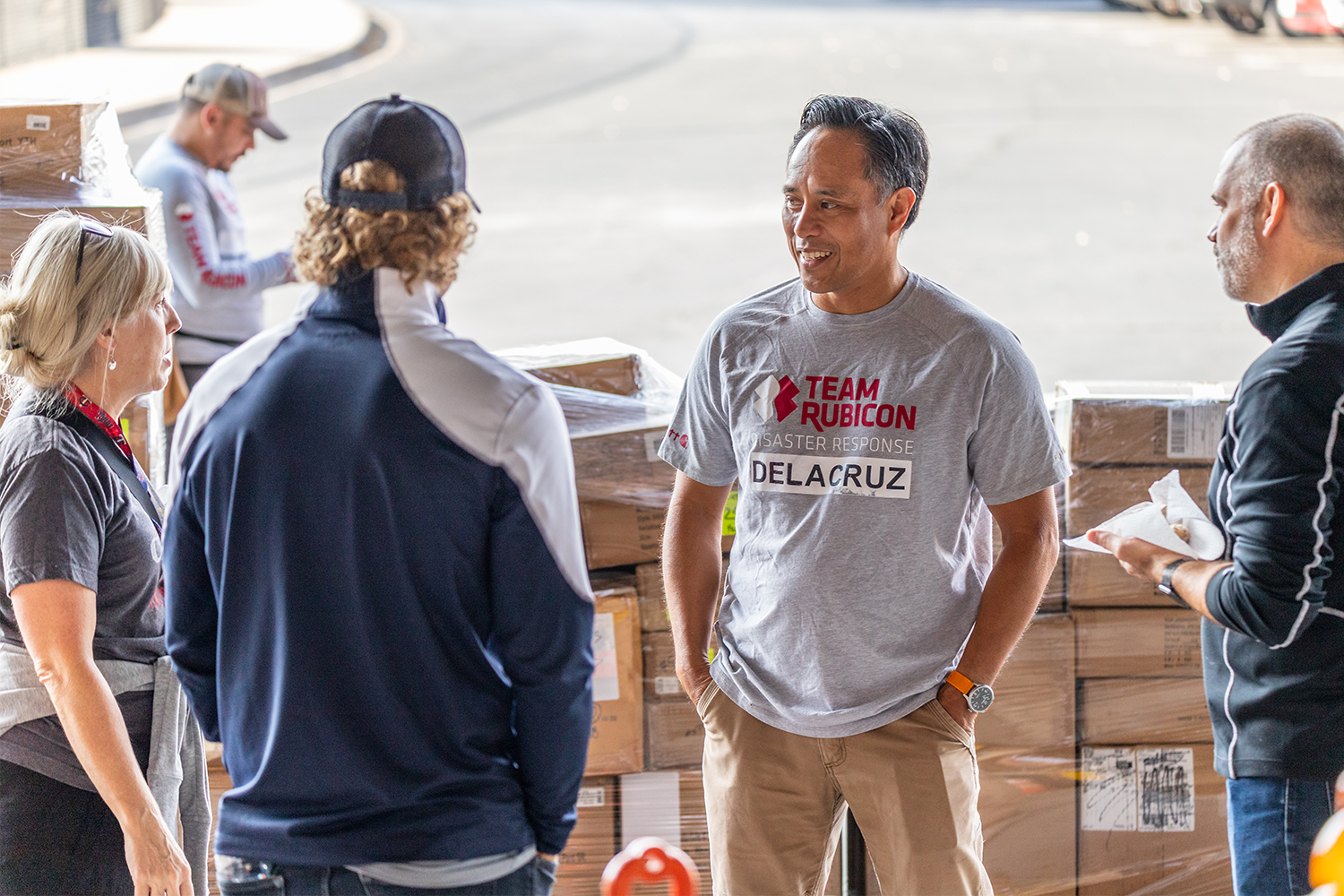
While delaCruz sees Team Rubicon contracting back to their original focus on disaster response after the pandemic tapers off, he also sees the Afghan resettlement initiative as one that’s close to the heart of the veterans that make up about 70% of the 150,000-strong volunteer force.
“Particularly for military veterans, the Afghan call to action has been really, really great for the volunteers and for the Afghans, because we had a kinship, a connection, a commitment to each other that we’re holding true to now,” he said.
At the beginning of the pandemic, delaCruz was COO, a position he held for a total of five and a half years before taking over as CEO from cofounder Jake Wood this July. Before joining Team Rubicon, delaCruz served for 22 years and six deployments in the Navy, including time in Afghanistan.
“We’ve found for our veterans … they’re reconnecting with the community that they used to be a part of, the military community. They’re reconnecting with an identity by being part of an organization,” he said. “Certainly I think what’s drawn new people is the breadth of the mission. You go, here’s our call to action: let’s help the Afghan resettlement; this is a national emergency, so let’s help with vaccine distribution; let’s provide relief to nurses and doctors in Navajo Nation; let’s go to Haiti or other places we’ve been like Mongolia or Uganda and help train and decompress their medical systems.”
On October 9, when Team Rubicon was in Minneapolis, delaCruz said the nonprofit had collected $11 million worth of donated goods for Afghan families. But that isn’t the only facet of resettlement they’re helping with.
“There are 53,000 or so humanitarian parolees, Afghans, on these bases, [and] another 12,000 coming in. Over the course of the next six months, probably another 30,000 or so,” he explained. “They go through a process and then they resettle in communities. So some of them are already flowing out of these bases, and primarily in Colorado, in Denver, we will understand a family is coming, we will furnish the house, put together all the furniture, get everything ready, and I think we’ve done 13 homes there now. That will continue to happen across the country in the future.”
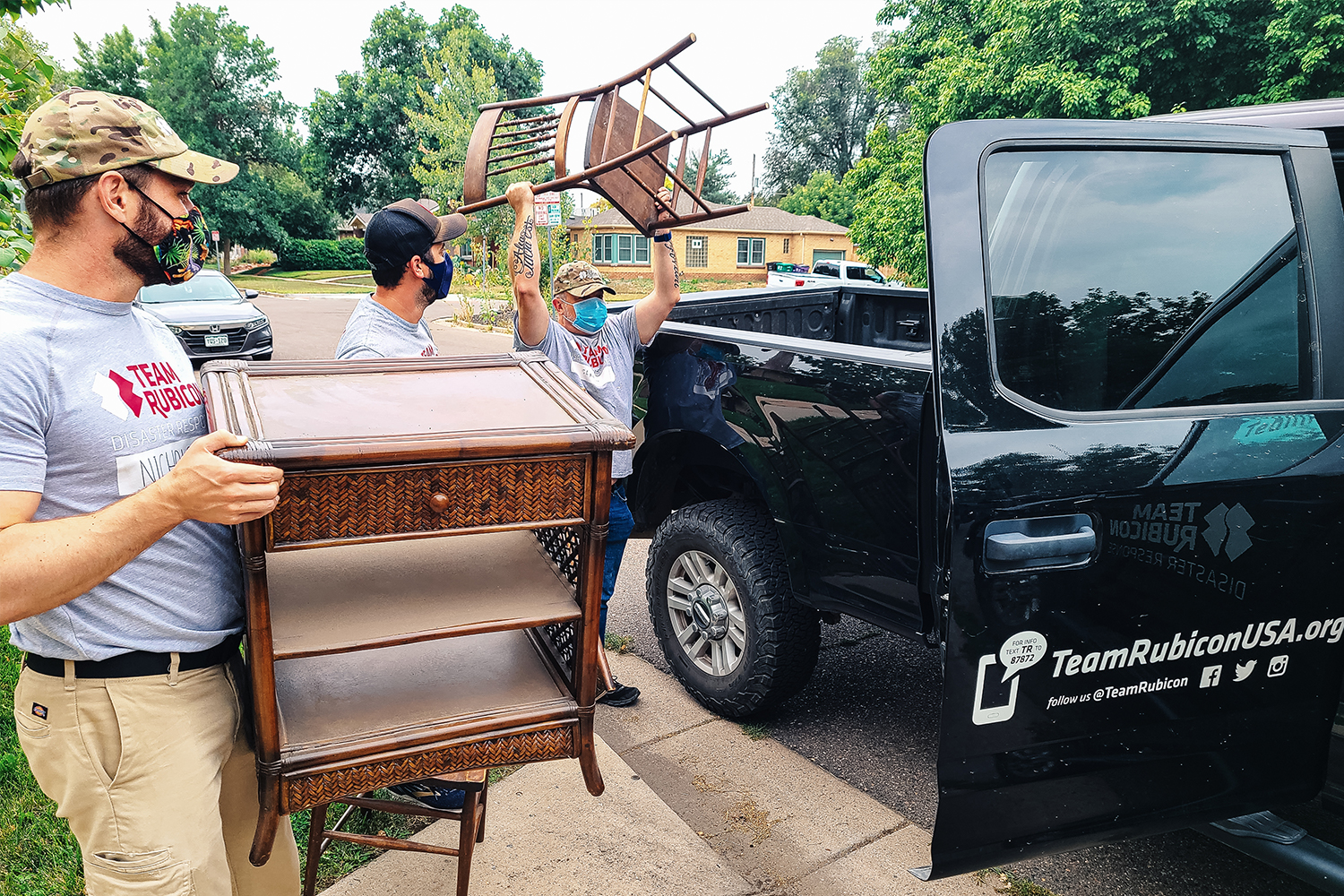
Whether it’s collecting and distributing donations or furnishing homes, Team Rubicon had committed to helping out with the Afghan resettlement at least through the end of October.
“It will last significantly longer than that,” he said, “if I was a betting man.”
Learn more about Team Rubicon’s efforts and donate here.
This article appeared in an InsideHook newsletter. Sign up for free to get more on travel, wellness, style, drinking, and culture.
